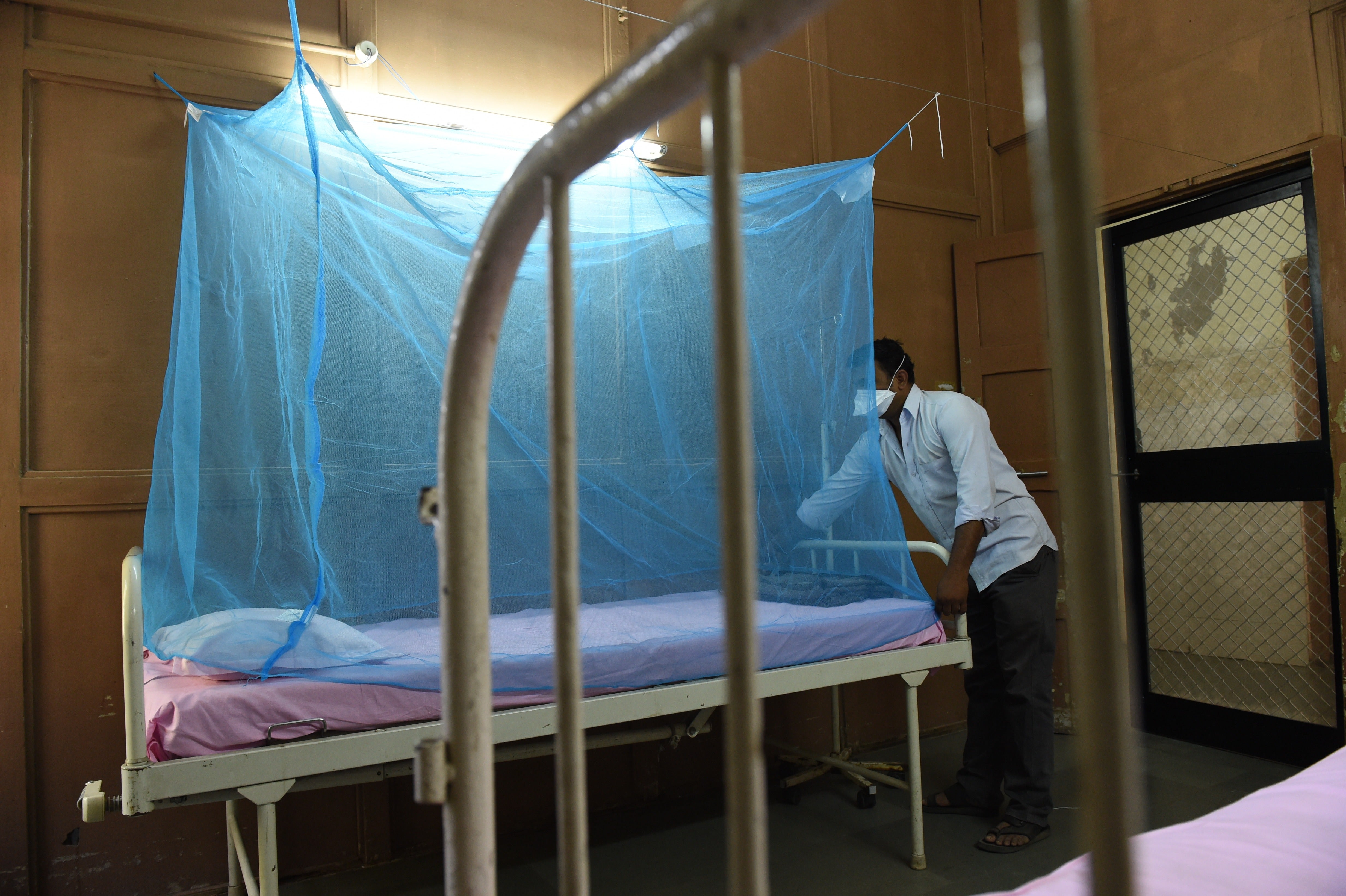Nearly 100 cases of Zika virus detected in India’s Uttar Pradesh
Officials start aggressive surveillance in the state, which is the country’s most populated

Your support helps us to tell the story
From reproductive rights to climate change to Big Tech, The Independent is on the ground when the story is developing. Whether it's investigating the financials of Elon Musk's pro-Trump PAC or producing our latest documentary, 'The A Word', which shines a light on the American women fighting for reproductive rights, we know how important it is to parse out the facts from the messaging.
At such a critical moment in US history, we need reporters on the ground. Your donation allows us to keep sending journalists to speak to both sides of the story.
The Independent is trusted by Americans across the entire political spectrum. And unlike many other quality news outlets, we choose not to lock Americans out of our reporting and analysis with paywalls. We believe quality journalism should be available to everyone, paid for by those who can afford it.
Your support makes all the difference.Cases of the Zika virus have surged in India’s northern Uttar Pradesh state, even as authorities are dealing with a deadly dengue outbreak and the Covid-19 pandemic.
At least 89 people, including 17 children and a pregnant woman, have tested positive for the virus in Kanpur city.
Officials have started aggressive surveillance in Uttar Pradesh, which is also the country’s most populated state, after a sharp uptick in the number of cases since last week.
Nepal Singh, Kanpur’s chief medical officer, said they have begun “aggressive contact tracing”, adding that door-to-door inspections have been underway, for which the health department has formed several teams.
“There has been a surge in cases of the Zika virus and the health department has formed several teams to contain the spread,” Dr Singh said.
"There is one woman who is pregnant and we are paying special attention towards her,” he added.
The Zika virus is spread through mosquitoes and has been linked to shrunken brain sizes in thousands of newborns along with Guillain-Barre syndrome, a rare auto-immune disease.
While the virus is generally transmitted through mosquito bites, it can also spread through sexual contact.
This is the first outbreak of the virus in Uttar Pradesh, according to the state’s authorities. The first cases were detected in Kanpur on 23 October.
The state’s chief minister Yogi Adityanath chaired a high-level meeting with officials, acknowledging that Zika virus cases were “spreading rapidly” in Kanpur.
“Considering the seriousness, special caution is required. Arrangements should be made in all hospitals. The health of each patient should be continuously monitored,” he was quoted as saying by news agency ANI.
State-wide mass sanitation and surveillance drives are being carried with workers spraying anti-larvae chemicals, according to some reports.
Health workers, during door-to-door visits, are on the lookout for stagnant water inside homes, which can be breeding grounds for mosquitoes, and are identifying patients with symptoms of the vector-borne disease.
So far more than 39,800 households have been inspected and awareness work has been carried out on more than 161,535 people to inform them of preventive measures, according to figures provided by the state government’s officials.
About 645 samples were sent to King George’s Medical University (KGMU) in state capital Lucknow last week, according to news agency Press Trust of India. Of these samples, 253 patients had symptoms of fever and 103 were of pregnant women.
Zika virus cases in significant numbers have previously been reported in the southern state of Kerala, where 65 cases were reported up to 2 August this year, according to government data. Sixty-one of these cases were reported from state capital Thiruvananthapuram.
Up to 80 per cent of patients infected with Zika virus remain asymptomatic or show symptoms of fever, rash, conjunctivitis, body ache and joint pains, according to the World Health Organisation.
The virus comes from the same mosquito that transmits the dengue virus and is widely prevalent in India.
Join our commenting forum
Join thought-provoking conversations, follow other Independent readers and see their replies
Comments